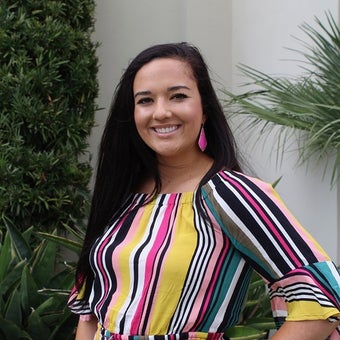Georgia Democrat calls out her own party on migrant crisis, school choice
State Rep. Mesha Mainor says she supports school choice, triggering attacks from other Democrats.
One Georgia Democrat is fed up with some members of her own party, accusing them of prioritizing illegal immigrants over Black children as kids struggle to stay afloat academically and economically.
State Rep. Mesha Mainor, a Democrat, is a staunch supporter of school choice, and she torched Georgia Democrats on "Fox & Friends" Monday for aiding migrant families while poor residents struggle with necessities.
"I was speaking to someone that works with migrants the other day, and when I was talking about my constituents, she said, ‘well, what about this program?’ And then she had to… step back a second," Mainor told Ainsley Earhardt Monday morning.
"And she said, ‘Oh, but those are just for migrants.’ And so there are so many services that… from a humanitarian aspect, sure. Give them those humanitarian aspects. But if you walk down the street in Atlanta, Georgia, right now, you are going to see kids on the corner selling water because they are trying to make money for their households."
GEORGIA GOV. BRIAN KEMP ENDORSES $6,500 PRIVATE SCHOOL VOUCHER BILL
"They don't have lights on… to do homework, and this is just a much broader issue than people are realizing," she continued.
Mainor garnered attention on the issue after she posted a video on Twitter over the weekend accusing her colleagues of trying to oust her over her stance on school choice.
"It's ironic. I'll say every election year, I hear ‘Black Lives Matter.’ But do they? I see every other minority being prioritized except Black children living in poverty that can't read," Mainor said in the video.
"We'll send $1,000,000 to the border for immigrant services, but Black communities, not even a shout-out. I'm sorry, I don't agree with this," she added. "I'm not backing down and I'm actually just getting started."
BLUE STATE COVID LEARNING LOSS WIDENED RACIAL ACHIEVEMENT GAPS RELATIVE TO RED STATES: STUDY
She even accused some fellow lawmakers of offering $1,000 checks "to anyone that will run against" her.
Mainor's deep-blue 56th House District stretches from southwest Atlanta up into the Midtown area and includes schools in dire need of improvement. She said some schools in her area have low single-digit proficiency levels in math and/or reading.
Additionally, politicians are not doing enough to counter the sliding academic achievement gap, she argued.
"We are acting like we care about Black people, and in my opinion, we are doing very little for Black people, and when you're talking about something like school choice, it really helps Black people. It helps children that are disabled," Mainor said.
"And so we put priorities on lots of other minorities, and I'm not saying that these other minorities are not important, but I feel like we are putting Black people at the very bottom of the totem pole," she continued.
CLICK HERE TO GET THE FOX NEWS APP
School choice advocates also support expansion of charter schools, which have grown greatly in Georgia in recent years and many of which count minority students as a majority of their enrollments.
Charter schools are publicly funded schools that are independently run and include students who are not in the immediate area; teachers unions often oppose them as well since their teachers generally are not unionized.
Mainor said parents in her district are in favor of school choice, and the backlash from her colleagues on the issue is a "slap" in the face to anyone who supports their right to choose where their children attend class.
"My parents want school choice," Mainor said. "I have the most charter schools in my district than any other district in the state of Georgia, and so for my party, my colleagues, to say that all these parents that have chosen charter schools and are choosing school choice options are irrelevant and not important, it's not only a slap in my face, but they're slapping every single parent in my district that uses these services in the face as well."
According to the NAEP Report Card, average math and reading scores dropped 9.8 points and 6.3 points respectively, in Georgia, from 2017 to 2022.
Fox News' David Rutz and Brian Flood contributed to this report.




